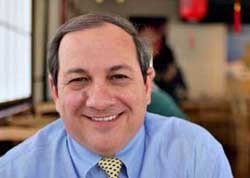
Thousands of protesters have died since anti-government demonstrations erupted nearly five months ago in Syria, and as the U.S. Senate considers proposals for Washington to treat Syria like Iran in regard to international sanctions, University of Notre Dame sanctions expert, George A. Lopez, notes there are two substantial shifts in U.S. and European policy this week.
“The first is targeting financial sanctions to persons and entities that are beyond the family of President Bashar al-Assad and his close inner circle, but who have been Assad supporters,” Lopez says. “The second is the growing discussion about soon imposing sanctions on the oil export sector and all who do business with it.
“The former will bite hard and also send a new, more serious message,” he says. “The latter will beg for new enforcement measures and can be effective in the longer term. Their downside is they take longer to implement.”
Lopez holds the Hesburgh Chair in Peace Studies at Notre Dame’s Kroc Institute for International Peace Studies. He is author of six books and more than two dozen articles on economic sanctions and just concluded a 10-month term on the United Nations Panel of Experts for monitoring the sanctions on North Korea. Panels of experts are comprised of independent analysts who point out to the UN Security Council where there are lapses of sanctions enforcement and sanctions busting.
Media Advisory: Lopez’ comments may be used in whole or in part. He is available for interviews and can be reached at 574-631-6972 or lopez.1@nd.edu